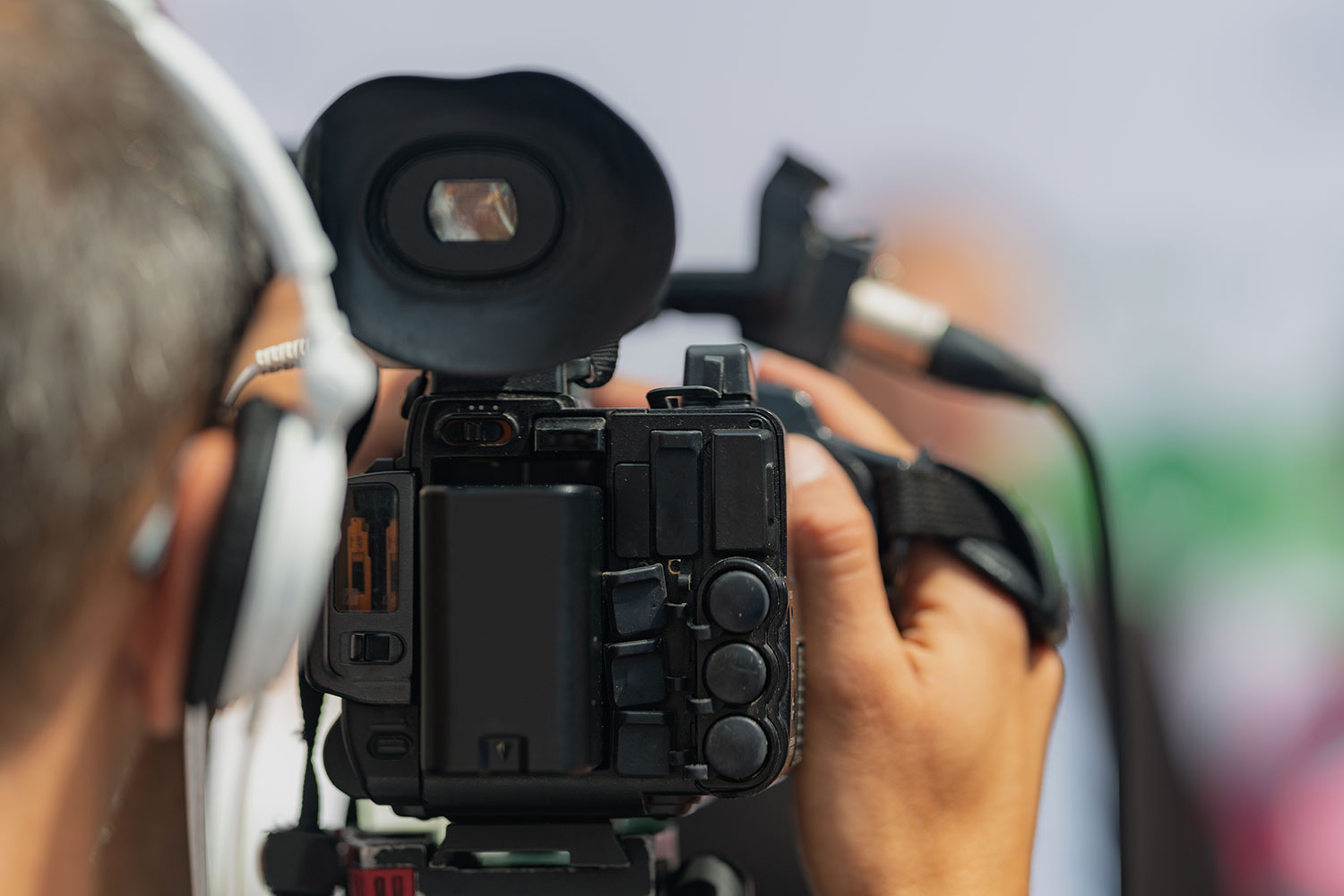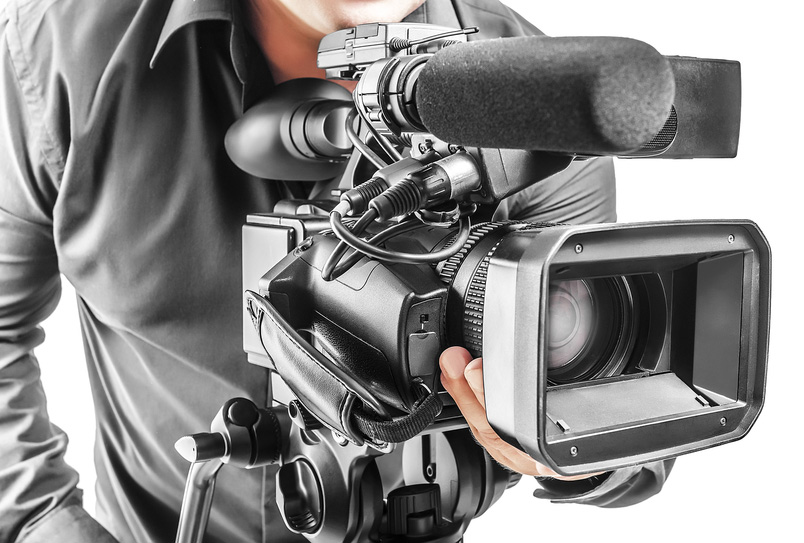Precision-Based Legal Videography for Legal Success.
Precision-Based Legal Videography for Legal Success.
Blog Article
The Function of Legal Videography in Depositions and Trials
Lawful videography has arised as a vital device in both depositions and tests, supplying a complex technique to recording witness statements. As legal specialists progressively recognize its worth, it motivates a deeper assessment of how these aesthetic records can influence juror assumptions and test outcomes.
Importance of Legal Videography
Legal videography plays a pivotal role in the documentation and presentation of depositions and trials. This specific field integrates technical skills with lawful expertise to develop a trusted record of process that can significantly affect instance end results. The appearance of lawful videography enhances the understanding of witness testament, allowing jurors and courts to observe not only the spoken words but additionally the demeanor, feelings, and body movement of the witnesses.

The significance of lawful videography prolongs past the courtroom; it likewise plays an important role in preserving evidence for future recommendation, whether for allures or more lawful activity. As such, its combination right into the lawful procedure is vital for making sure a reasonable and precise depiction of the realities, eventually contributing to the quest of justice.

Process of Legal Videography
While catching the subtleties of depositions and trials, the procedure of legal videography entails several vital actions that make sure top quality, exact recordings. A professional legal videographer prepares by evaluating the instance materials and understanding the particular needs of the deposition or test. This preparation includes acquainting themselves with the individuals and the context, which helps in capturing relevant details.
On the day of the recording, the videographer establishes the needed equipment, which usually includes high-definition cameras, microphones, and proper lights. Guaranteeing optimum angles and audio quality is crucial, as it directly impacts the performance of the recording. The videographer communicates with attorneys and participants to develop methods, guaranteeing that every person understands the recording procedure.
During the deposition or trial, the videographer thoroughly tape-records the process, paying very close attention to both spoken and non-verbal signs. legal videography. This consists of catching the attitude and reactions of witnesses and attorneys. After the session wraps up, the videographer may edit the video for clearness and compliance with lawful requirements, producing an end product that accurately reflects the proceedings for future reference and use in legal contexts
Benefits in Depositions
The consolidation of videography in depositions uses many benefits that improve the total procedure of collecting proof. One key advantage is the ability to capture witness statements with aesthetic and auditory fidelity, supplying an extra precise depiction of the witness's demeanor, tone, and body movement. This multidimensional strategy allows lawyers and courts to evaluate reputation more effectively than standard written records alone.
In addition, videographed depositions work as a powerful tool for protecting testament. Must a witness come to be not available for test, their taped deposition can be played in court, ensuring that their proof continues to be accessible and appropriate. This aspect dramatically reduces the danger of shedding essential info that can influence instance outcomes.
Additionally, making use of lawful videography promotes better preparation for lawyers. Examining video footage allows legal groups see here to analyze and fine-tune their approaches, determining toughness and weaknesses in their cases. This primary advantage can bring about even more compelling discussions in court.
Last but not least, videography enhances the general professionalism of the deposition process, instilling self-confidence in customers pertaining to the thoroughness of their legal representation. By leveraging technology, lawful specialists can significantly boost the effectiveness of depositions.
Influence On Trials
In lots of tests, the integration of videography can substantially influence the presentation of evidence and the court's assumption. Lawful videography captures witness testaments and important evidence in a vibrant style, permitting jurors to engage with the material on several levels. This aesthetic element boosts the narration element of a trial, giving context and emotional vibration that typical text-based proof may lack.
Moreover, video recordings can function as powerful tools for impeachment throughout cross-examination. When disparities develop in between a witness's prior statements and their court testament, video clip evidence provides an unbiased recommendation that can persuade jurors' opinions. This immediacy and clarity can strengthen the trustworthiness of a party's narrative while concurrently weakening opposing debates.
Furthermore, making use of videography can assist enhance intricate info, making it a lot more easily accessible to jurors that might struggle to grasp detailed details presented exclusively with spoken statement. By incorporating visuals with auditory details, lawful videography can improve retention and understanding, inevitably affecting the court's decision-making procedure. The impact of videography in trials expands beyond mere appearances; it plays a vital duty in shaping the legal landscape and results.
Future Trends in Legal Videography
As we look toward the future of legal videography, several emerging patterns guarantee to improve its duty within the court room. One substantial fad is the integration of expert system (AI) in video clip evaluation and editing and enhancing - legal videography. AI can enhance the process of determining crucial moments in taped depositions, allowing lawyers to promptly access pertinent web content, therefore boosting performance in instance preparation
Additionally, the rise of digital fact (VR) and enhanced reality (AR) technologies is anticipated to transform how jurors experience proof. By immersing jurors in a substitute environment, these modern technologies can supply a much more extensive understanding of complicated scenarios, bring about even more educated deliberations.

In addition, the increasing demand for remote depositions, sped up by the COVID-19 pandemic, will likely proceed. Legal videographers will certainly require to adapt to new software application and platforms to make certain top quality recordings in virtual setups.
Finally, the expanding emphasis on information security read more will require stricter protocols for storing and sharing video evidence. As the lawful landscape look at more info advances, legal videographers should remain abreast of these trends to preserve their relevance and performance in the judicial process.

Conclusion
In summary, lawful videography serves a crucial function in the judicial process, enhancing the integrity of depositions and tests. By recording the subtleties of witness statements, this medium not only preserves crucial proof yet also aids in presenting information properly to jurors. The value of visual paperwork in examining integrity and promoting cross-examination can not be overemphasized. As innovation remains to advance, lawful videography is poised to further transform its duty within the legal landscape.
Report this page